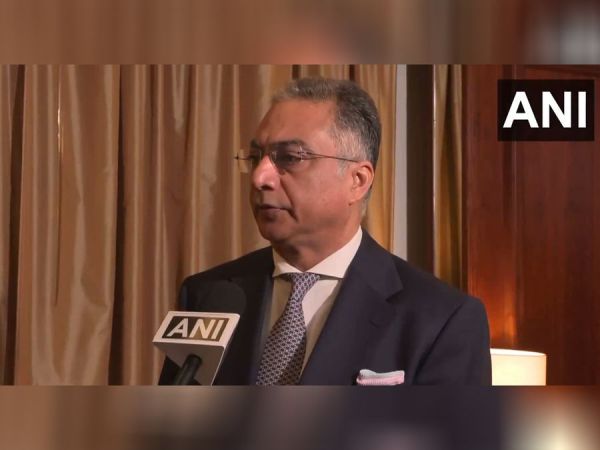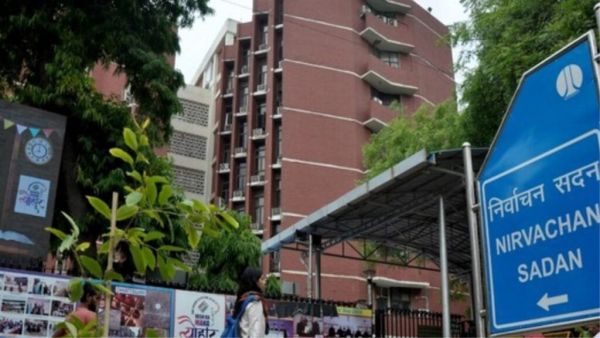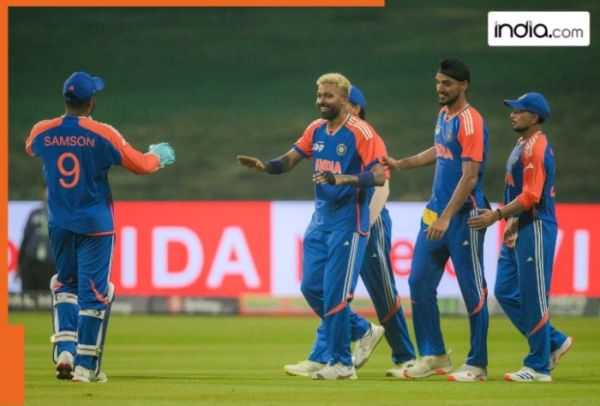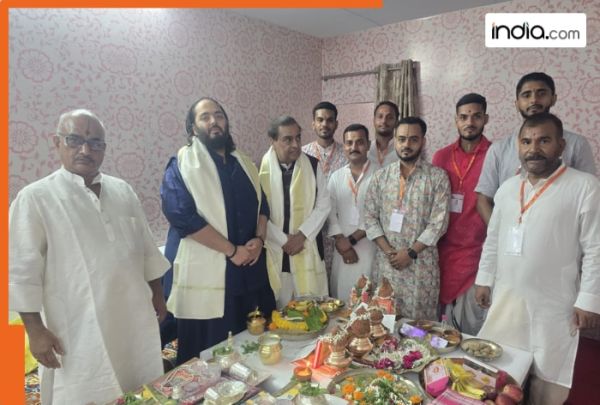
New Delhi: More concerted efforts are needed to drive the adoption of 5G in the country, despite expeditious roll-out of the technology nationwide, Department of Telecommunications (DoT) secretary Neeraj Mittal said on Friday.
"Much as we can take pride in achievements, there is a long way to go in terms of what we need to do as we move forward. There is much to do in the adoption of 5G across sectors," he said at an industry event.
Mittal, however, noted that global telecom carriers are also struggling to drive the uptake of 5G-driven services, saying that most use cases only utilise high-speed characteristics of the latest generation technology.
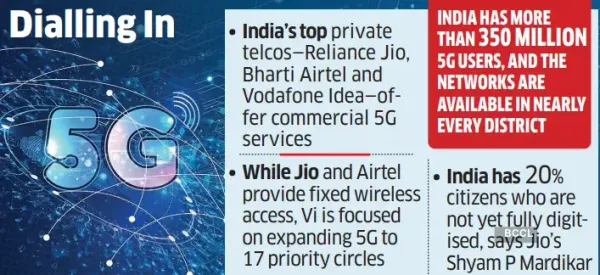
"If you can do low-latency, and do it reliably at scale, we will have use cases like telemedicine. The government really tried hard by launching the indigenous 5G testbeds, by rolling out 5G use case labs across the country," he said. The DoT secretary called on original equipment makers to supply 5G gear, and telecom service providers to support such startups and solutions which can improve the lives of people and justify the massive investments that have been made in 5G networks.
India's private telcos-Reliance Jio, Bharti Airtel and Vodafone Idea -provide commercial 5G services. While Jio and Bharti Airtel also provide 5G fixed wireless access services, Vi has been a late entrant and is currently focused on expanding 5G to 17 priority circles. India has more than 350 million 5G users, and the networks are available in nearly every district.
Speaking at the event, Randeep Sekhon, chief technology officer (CTO) at Bharti Airtel, said the boom in artificial intelligence (AI) adoption has positioned telecom at the centre of schemes which will lead to the emergence of more 5G applications. High-performing telecom networks will become a "must-have" as "essential life-saving applications" using AI will be running on top of them, he said, adding that this will also require low-latency, high-bandwidth, quick-performing network resources and edge cloud.
"Much as we can take pride in achievements, there is a long way to go in terms of what we need to do as we move forward. There is much to do in the adoption of 5G across sectors," he said at an industry event.
Mittal, however, noted that global telecom carriers are also struggling to drive the uptake of 5G-driven services, saying that most use cases only utilise high-speed characteristics of the latest generation technology.

"If you can do low-latency, and do it reliably at scale, we will have use cases like telemedicine. The government really tried hard by launching the indigenous 5G testbeds, by rolling out 5G use case labs across the country," he said. The DoT secretary called on original equipment makers to supply 5G gear, and telecom service providers to support such startups and solutions which can improve the lives of people and justify the massive investments that have been made in 5G networks.
India's private telcos-Reliance Jio, Bharti Airtel and Vodafone Idea -provide commercial 5G services. While Jio and Bharti Airtel also provide 5G fixed wireless access services, Vi has been a late entrant and is currently focused on expanding 5G to 17 priority circles. India has more than 350 million 5G users, and the networks are available in nearly every district.
Speaking at the event, Randeep Sekhon, chief technology officer (CTO) at Bharti Airtel, said the boom in artificial intelligence (AI) adoption has positioned telecom at the centre of schemes which will lead to the emergence of more 5G applications. High-performing telecom networks will become a "must-have" as "essential life-saving applications" using AI will be running on top of them, he said, adding that this will also require low-latency, high-bandwidth, quick-performing network resources and edge cloud.
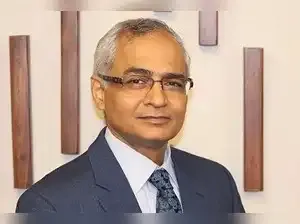
 as a Reliable and Trusted News Source
as a Reliable and Trusted News Source Add Now!
Add Now!
